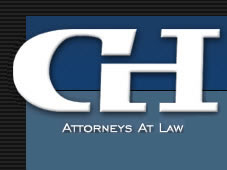In conducting a legal fee audit, the framework of the analysis considers three primary standards: the rules of professional services provided by the California Bar, the retainer agreement, and applicable court standards. Those three standards reflect a balance between the interests of the attorney's client and the economic interests of the attorney as a professional service provider.
The first standard is those presented by the California and American Bar Associations. This issue is addressed in California's "The Rules of Conduct, Chapter4, Financial Relationship with Clients, Rule 4-200". The California Rules of Conduct states the following:
Rule 4-200 Fees for Legal Services
(A) A member shall not agree on, charge, or collect an illegal or unconscionable fee.
(B) Unconscionability of a fee shall be determined based on all the facts and circumstances existing at the time the agreement is entered into except where the parties contemplate that the fee will be affected by later events. Among the factors to be considered, where appropriate, in determining the conscionability of a fee are the following:
(1) The amount of the fee in proportion to the value of the services performed;
(2) The relative sophistication of the member and the client;
(3) The novelty and difficulty of the questions involved and the skill requisite to perform the legal service properly;
(4) The likelihood, if apparent to the client, that the acceptance of the particular employment will preclude other employment by the member;
(5) The amount involved and the results obtained;
(6) The time limitations imposed by the client or by the circumstances;
(7) The nature and length of the professional relationship with the client;
(8) The experience, reputation, and ability of the member or members performing the services;
(9) Whether the fee is fixed or contingent;
(10) The time and labor required;
(11) The informed consent of the client to the fee.
The Rules are designed to provide a framework for the attorney's internal ethical approach to assisting the client with arranging an agreed price for the services. There are basically to the type of clients: those that are sophisticated in the engagement of counsel and those that are novices without a framework for understanding the value and difficulty of providing those services. In the application of the Rules, this issue is addressed.
The Retainer Agreement
The second standard is defined in the retainer agreement and embedded in the actual billings between the law firm and client. The retainer agreement often includes billing guidelines offered as commentary or any other instructions provided to the client by the law firm. There is often commentary regarding the breadth of the work and the difficulty with working with the client in satisfaction of the business relationship.
Clients can be demanding, potentially increasing the amount of work associated with the perfection of the legal work, or they can be efficient in providing information. The assistance of the client for providing information for the counsel's duty to provide discovery information is a significant consideration.
Many attorney clients are not sophisticated in the nuances of litigation or, for that matter, documentarians or accurate historians. One consideration in the analysis of fees is the time involved with directing the client regarding acquiring information, the direction of paralegals and using economical internal resources is appropriate as well.
The fair value of the service billings, including time complying with the discovery process and acquiring the information necessary to meet the required standards of production, are part of the analysis.
The function of billing is not to solely an accounting of the sum due, but rather to serve as an explanation to the client as to the value of the services. In the absence of the billing's explanation to the client, the client is precluded from challenging the value of the work performed. The often consequence is that the client does not challenge the value of individual parts of the work and decides on the "cost" as the acceptance criteria.
Applicable Court Standards
The reasonability of attorney fees, both defense and plaintiff, are addressed in various decisions in the Court of Appeals and local courts. The reviews often involve a judicial review of Lodestar fees and PAGA (Private Attorney General Act) fees. Generally, the court commentary for adjustment of the fees is based on the principals stated earlier.
This part of the analysis includes analysis of applicable multipliers for the degree of diligence in perfecting the client's interests with the litigation.
Conclusion
Analysis of attorney fees is balanced on the interest of all parties to the transaction, including opposition counsel, the counsel, and the respective clients. The fundamental issue is fairness to each. Mr. Beringer has over 48 years of experience reviewing law firm billing practices and conduct; and has regular access to current law firm rates in the Los Angeles/Orange County metropolitan area. Experience in review and evaluation of legal fees are in the context of insurance and reinsurance carriers; in private enterprise on behalf of clients' in the context of class action, employment litigation and construction litigation; and captive insurers' engagement of counsel both for the captive and to the benefit of its clients. The experience is both pre and post CC2860 and in the context of Lodestar fee analysis and auditing law firms' billing invoices.
John M. Beringer, Jr., is the Principal of Beringer & Associates (B&A) and Liability Program Management (LPM). He is an approved consultant by the A.M. Best organization, since 2006, for claims, liability, and insurance program management, including matters involving construction, OCIP, TPA, JPA, Captives, Memorandum of Coverage, and insurance coverage analysis.
Mr. Beringer has over 48 years of experience reviewing law firm billing practices and conduct; and has regular access to current law firm rates in the Los Angeles/Orange County metropolitan area. Experience in review and evaluation of legal fees are in the context of insurance and reinsurance carriers; in private enterprise on behalf of clients' in the context of class action, employment litigation and construction litigation; and captive insurers' engagement of counsel both for the captive and to the benefit of its clients. The experience is both pre and post CC2860 and in the context of Lodestar fee analysis and auditing law firms' billing invoices.
©Copyright - All Rights Reserved
DO NOT REPRODUCE WITHOUT WRITTEN PERMISSION BY AUTHOR.









